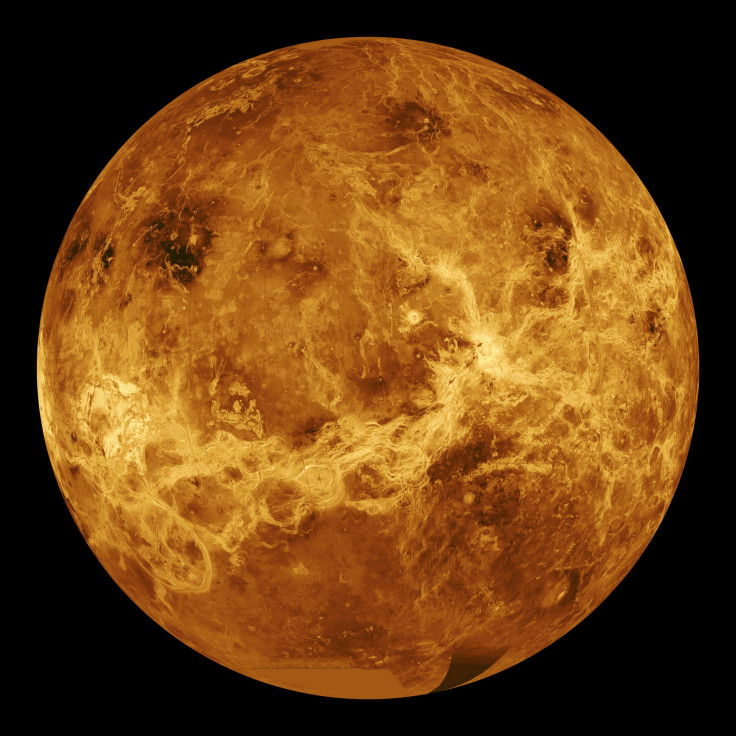Water On Venus: Planet May Have Had An Ocean

Venus might have had an ocean earlier in its life, when clouds in its atmosphere would have kept its surface cool enough to hold liquid water.
Scientists used computer simulations to test scenarios in the early solar system and see whether Venus, the scorched planet that is second from the sun, once could have been wet. According to a study in the Journal of Geophysical Research: Planets, while it remains unclear if an ocean ever actually existed on Earth’s inward neighbor, the data show that it is not out of the realm of possibility.
Read: Are Alien Planets More Likely to Be Covered in Water or Land?
Some of the factors the researchers used in their computer simulations were the amount of carbon dioxide levels on Venus today, how much heat from the sun has reached Venus over the years, and how slowly the planet rotates on its axis — so slowly that Venus completes an orbit around the sun faster than it completes a rotation, making a day last longer than a year there. The team plugged in that information to a model of how the solar system formed that suggests planets were extremely hot in the beginning and then cooled off over time.
According to the study, a young Earth-like planet would have had a lot of heat and molten rock but as the rock cooled and solidified, that transformation would have released volatile compounds that would have contributed to an atmosphere. Depending on when cloud coverage would have formed in the skies above Venus and how much light from the sun its surface was reflecting, it’s possible that Venus could have held a thin ocean if it had merely 30 percent of the water that Earth does.
It would be a huge difference from what the planet looks like now — Venus is similar to Earth in its size but has an atmosphere of carbon dioxide that is much thicker than Earth’s and surface temperature reach several hundred degrees. It has almost no water vapor in its atmosphere today.
The new research is not the first time scientists have suggested that Venus was once much more habitable than it is now — NASA reported last year that there could have been a stretch of 2 billion years when the planet had an ocean, albeit a shallow one, and cooler surface temperatures.
What changed between then and now? A lot more radiation from the sun reaches Venus than it does Earth, so over time the ocean would have evaporated and eventually all that water vapor would have been lost to space. Subsequently, the large amount of carbon dioxide leftover would have amped up the greenhouse effect on the planet, trapping more and more heat until Venus became completely cooked.
Read: Are There Aliens on Mars? Not Even Bacteria Can Survive on the Surface
Venus is not the only Earth-like planet in the solar system that scientists believe once was covered in ocean. Research has suggested that Mars was warm and wet earlier in its life, compared to the dry landscape we see today. Channels on the Martian surface could have been carved out by falling rain that accumulated in rivers, and all that water on Mars may have fed into an ocean in the northern half of the planet. Over time the Martian atmosphere changed and much of it was lost to space, and the water dried up.
© Copyright IBTimes 2024. All rights reserved.





















